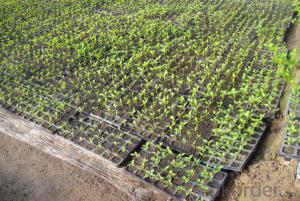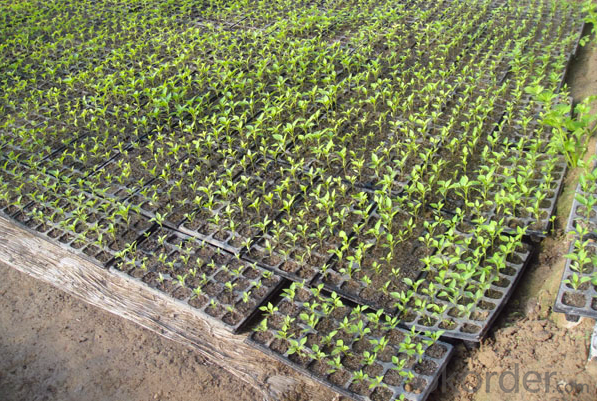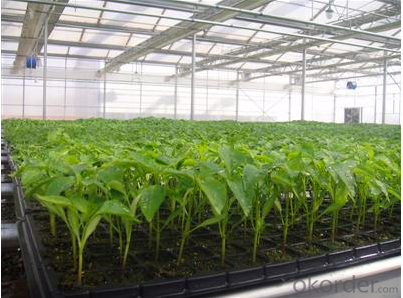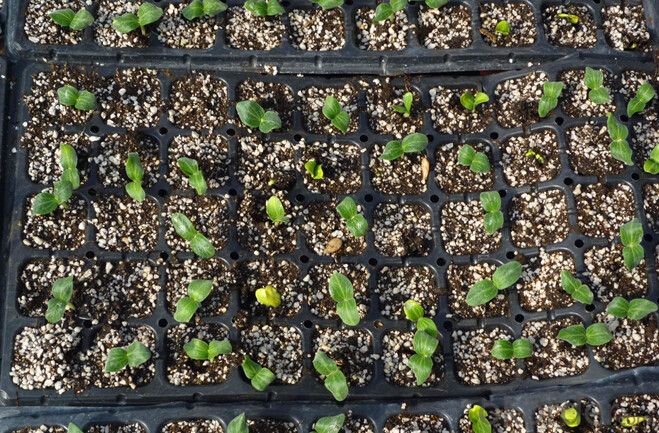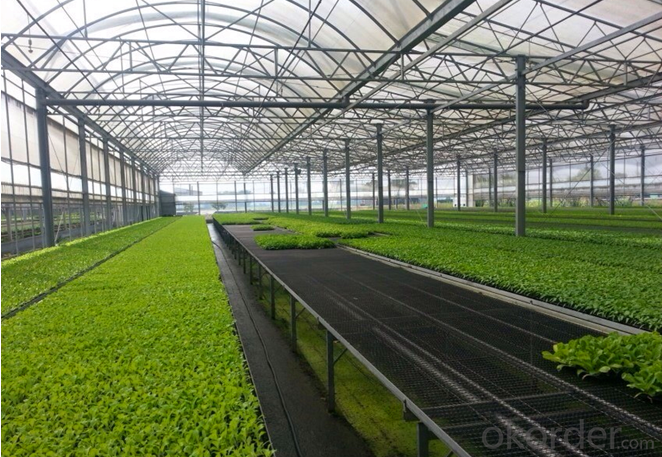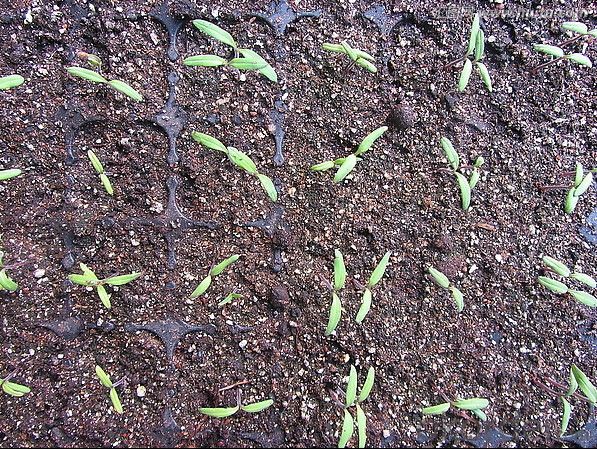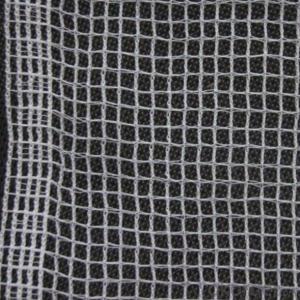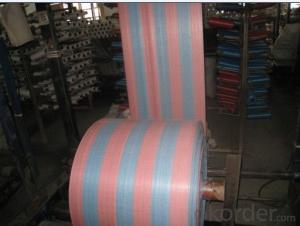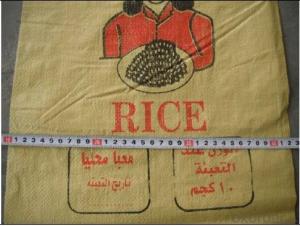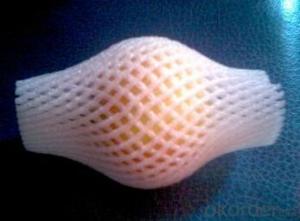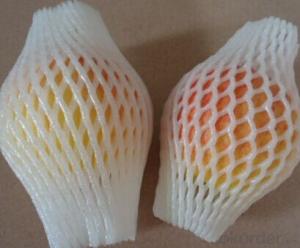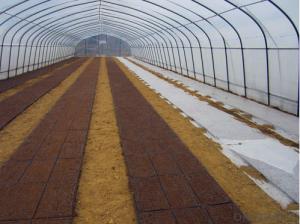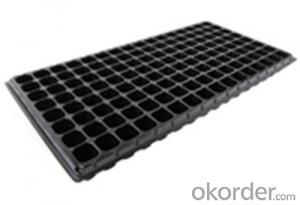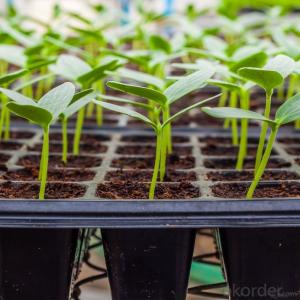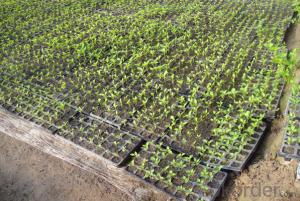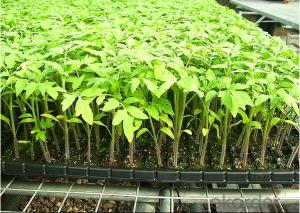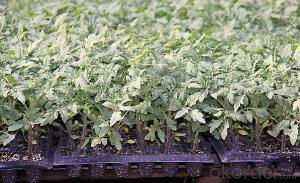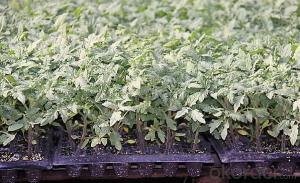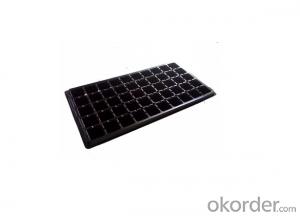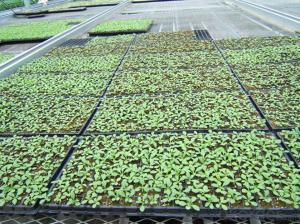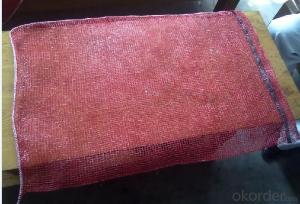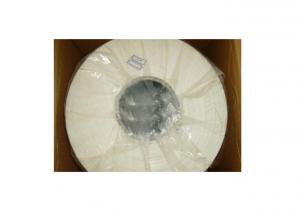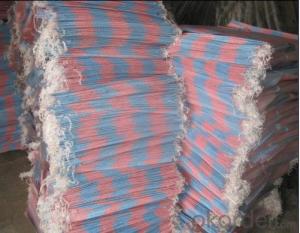Greenhouse Usage Plug Trays HIPS Made Plastic Seed Tray HIPS
- Loading Port:
- China main port
- Payment Terms:
- TT OR LC
- Min Order Qty:
- 3000 pc
- Supply Capability:
- 50000 pc/month
OKorder Service Pledge
OKorder Financial Service
You Might Also Like
Brief Introduction to CNBM:
CNBM International Corporation (CNBM International) is the most important trading platform of CNBM Group Corporation, a state-owned company under the direct supervision of State-owned Assets Supervision and Administration Commission of the State Council.
CNBM International is highly recognized by its business partners and clients all over the world and has obtained rapid development under the spirit of win-win. We will carry on the mutual beneficial, innovative and revolutionary trading structure as we did before, create value for our employees, share holders and clients and benefit the whole society in our future development.
Features of Plug Trays (Growing and Seedling) HIPS Made Plastic Plug Tray for Greenhouse:
· Material: HIPS
· Thickness: 0.5mm-1.5mm, Standard:1mm
· Weight: 80g(±5)g-230g(±5)g, Standard weight:155g(±5)g
· Size: length:490mm-540mm, width:190mm-345mm,depth:25mm-150mm
· Standard:540mmX280mm
· Cell count: 18-512
· Package: In Carton
· Warrenty: 8-10 times
Picture:
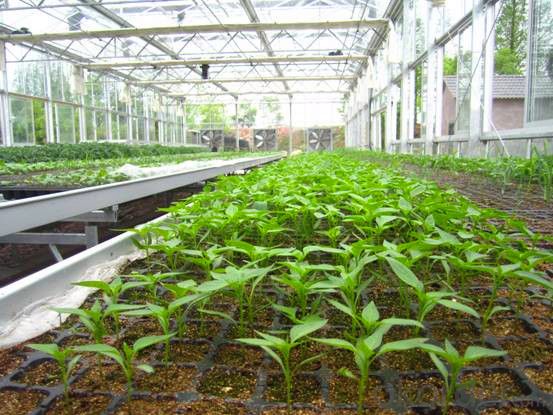
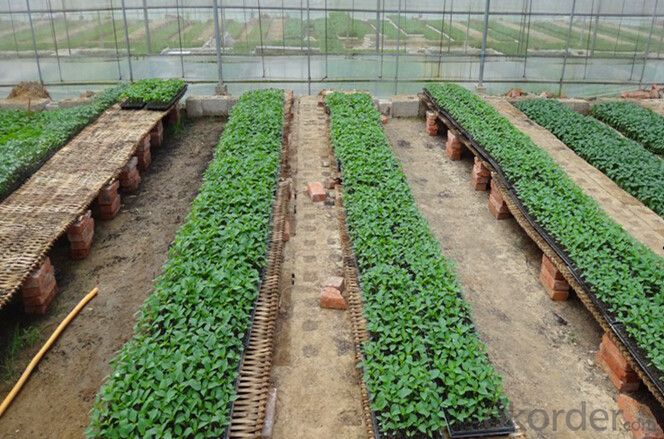
Specification of Plug Trays (Growing and Seedling) HIPS Made Plastic Plug Tray for Greenhouse:
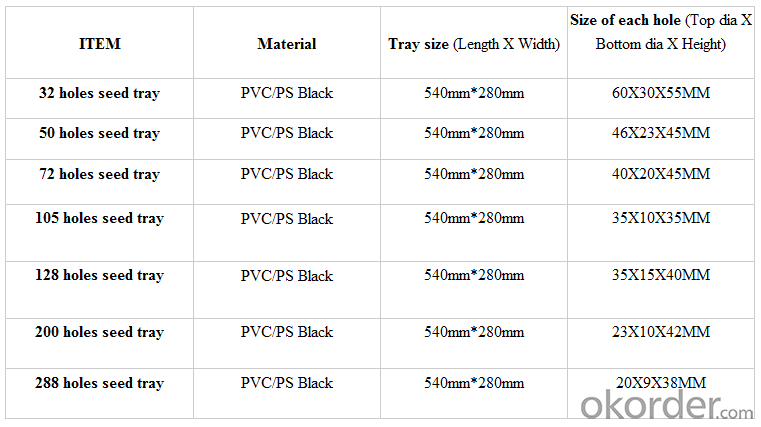
FAQ of Plug Trays (Growing and Seedling) HIPS Made Plastic Plug Tray for Greenhouse:
Q:1.How many times can the seed tray be used?
A: Under the same environment, it is decided by the thickness. Usually 0.6mm thickness can be used for 1 or 2 times.
1.0 thickness can be used for 3-4 times. 1.5 thickness can be used for 8-10 times.
Q: 2.How long is the production time?
A: Usually one to two weeks.
Q: 3.How is the seed tray being packaged?
A: They can be packaged in carton or pallets. Carton size is 1375px*725px*1250px.
- Q: Are there any studies on the impact of agricultural plastic products on biodiversity?
- Yes, there have been numerous studies conducted on the impact of agricultural plastic products on biodiversity. These studies have examined the effects of plastic pollution on various ecosystems, including farmlands, freshwater bodies, and marine environments. They have found that agricultural plastics can harm biodiversity by entangling and suffocating animals, leaching harmful chemicals into the environment, and altering habitats. Additionally, the microplastics generated from the degradation of agricultural plastics can have detrimental effects on a wide range of organisms. Overall, these studies emphasize the need for sustainable alternatives to mitigate the negative impact of agricultural plastic products on biodiversity.
- Q: How do plastic row markers assist in precise planting?
- Plastic row markers assist in precise planting by providing clear and consistent visual guidance for farmers or gardeners to ensure accurate spacing and alignment of crops or seeds in rows.
- Q: Can nursery trays be used for transplanting perennials?
- Yes, nursery trays can be used for transplanting perennials. Nursery trays provide a convenient and efficient way to start and grow plants, including perennials. They offer a controlled environment for seedlings or young plants to establish roots before transplanting them into the ground. Additionally, nursery trays allow for easy handling and transportation of plants, making the transplanting process smoother and more efficient.
- Q: Do nursery trays come with labels or markers?
- Yes, nursery trays usually come with labels or markers to help identify and organize the different plants or seedlings being grown.
- Q: How do I choose ground cover for a sunny area with sandy soil?
- When selecting ground cover for a sunny area with sandy soil, it is important to choose plants that are well-suited to these conditions. Look for ground covers that are drought-tolerant and able to thrive in well-draining soil. Some excellent options for sandy soil include creeping thyme, sedum, lavender, and yarrow. These plants not only tolerate sandy soil but also provide attractive foliage and flowers, while requiring minimal maintenance.
- Q: What are the different types of plastic pots used in plant nurseries?
- There are several different types of plastic pots commonly used in plant nurseries. These include standard nursery pots, which are lightweight and durable; fabric pots, which allow for better aeration and root development; biodegradable pots, which are made from materials that break down over time; and decorative pots, which are designed to enhance the visual appeal of the plants.
- Q: How do you choose ground cover that tolerates wet soil?
- When choosing ground cover that tolerates wet soil, it is essential to consider plants that thrive in moist conditions. Look for options such as ferns, sedges, and certain grasses that have a higher tolerance for waterlogged soil. Additionally, selecting plants with shallow root systems can help them adapt to the damp environment.
- Q: Are agricultural plastic products resistant to water damage?
- Yes, agricultural plastic products are generally resistant to water damage. They are designed to withstand exposure to moisture and are often used in agricultural settings where they come into contact with water regularly.
- Q: Is it possible for farmers to utilize recycled agricultural film to minimize waste and environmental pollution?
- <p>Yes, farmers can use recycled agricultural film to reduce waste and pollution. Recycled film can be repurposed for mulching or as a protective cover, reducing the need for new plastic production. This not only decreases the amount of plastic waste that ends up in landfills and the environment but also conserves resources by reusing materials. Additionally, recycling agricultural film can help in mitigating the negative impacts of plastic pollution on soil health, water systems, and wildlife. However, it's crucial to ensure proper collection, sorting, and recycling processes are in place to make this practice effective and sustainable.</p>
- Q: How do I choose ground cover for a coastal area with strong winds?
- When choosing ground cover for a coastal area with strong winds, it is important to consider plants that are resilient and can withstand harsh conditions. Opt for low-growing, compact plants that have strong root systems to anchor themselves in the soil. Look for salt-tolerant varieties that can withstand the high salt content in coastal environments. Some suitable options include ornamental grasses, creeping junipers, and coastal wildflowers. Additionally, consult with local gardening experts or nurseries for specific recommendations tailored to your coastal area's unique conditions.
Send your message to us
Greenhouse Usage Plug Trays HIPS Made Plastic Seed Tray HIPS
- Loading Port:
- China main port
- Payment Terms:
- TT OR LC
- Min Order Qty:
- 3000 pc
- Supply Capability:
- 50000 pc/month
OKorder Service Pledge
OKorder Financial Service
Similar products
Hot products
Hot Searches
Related keywords
